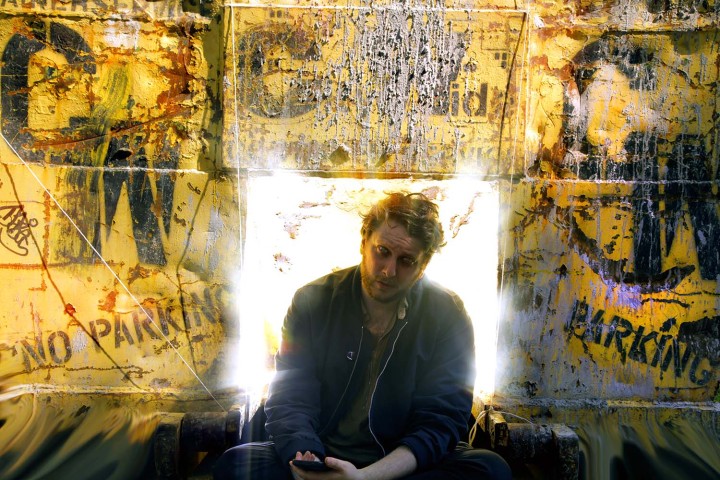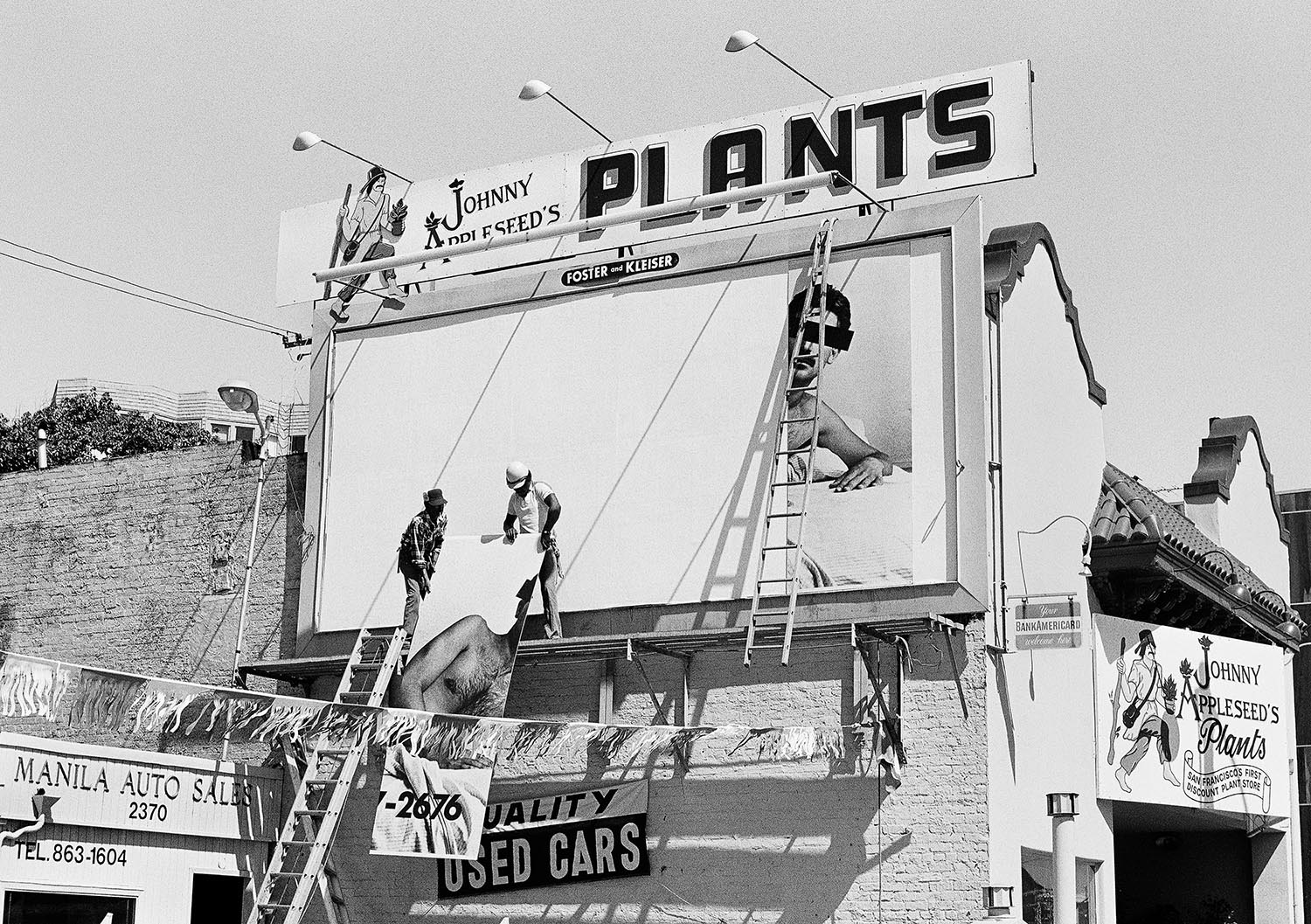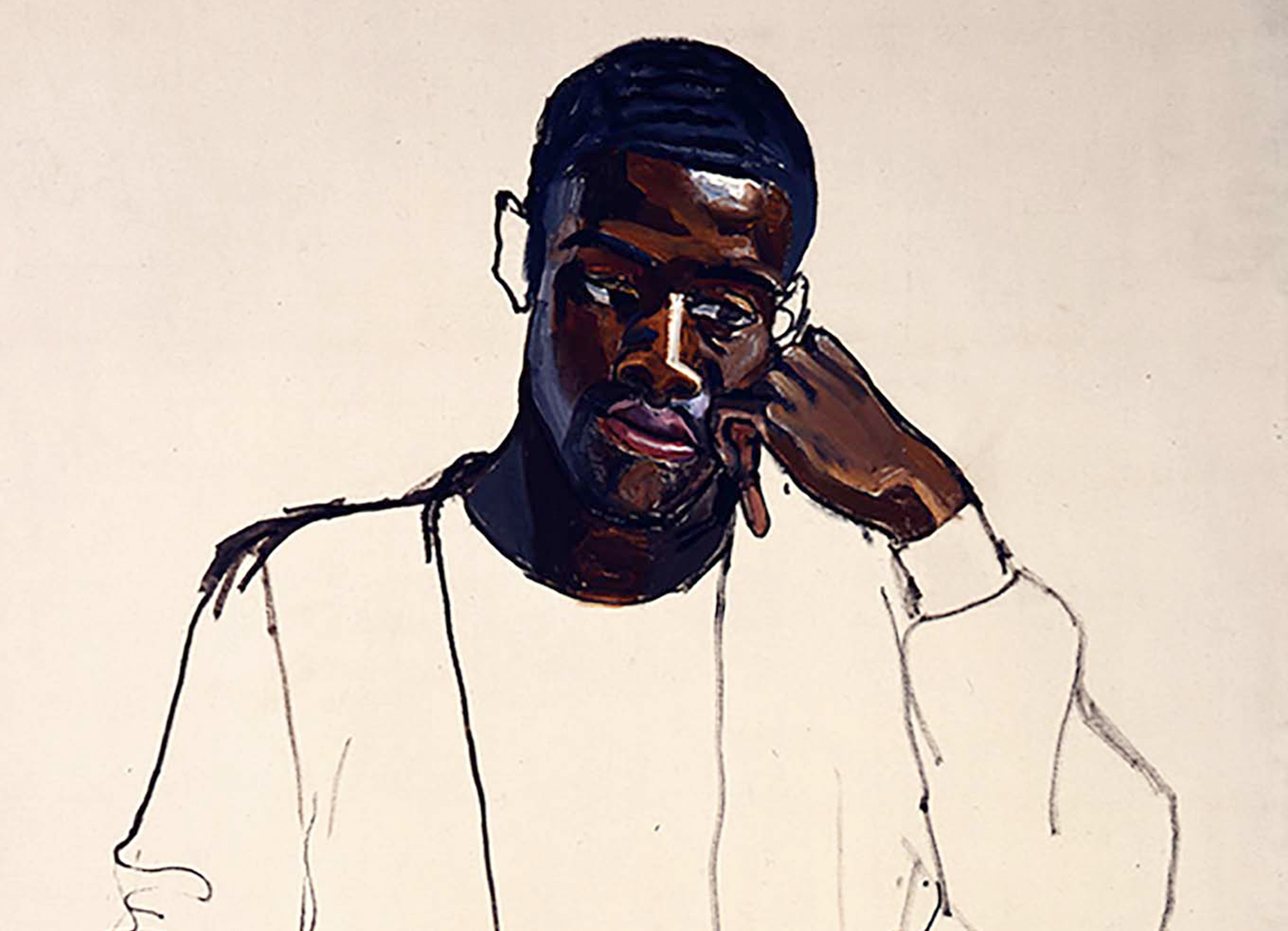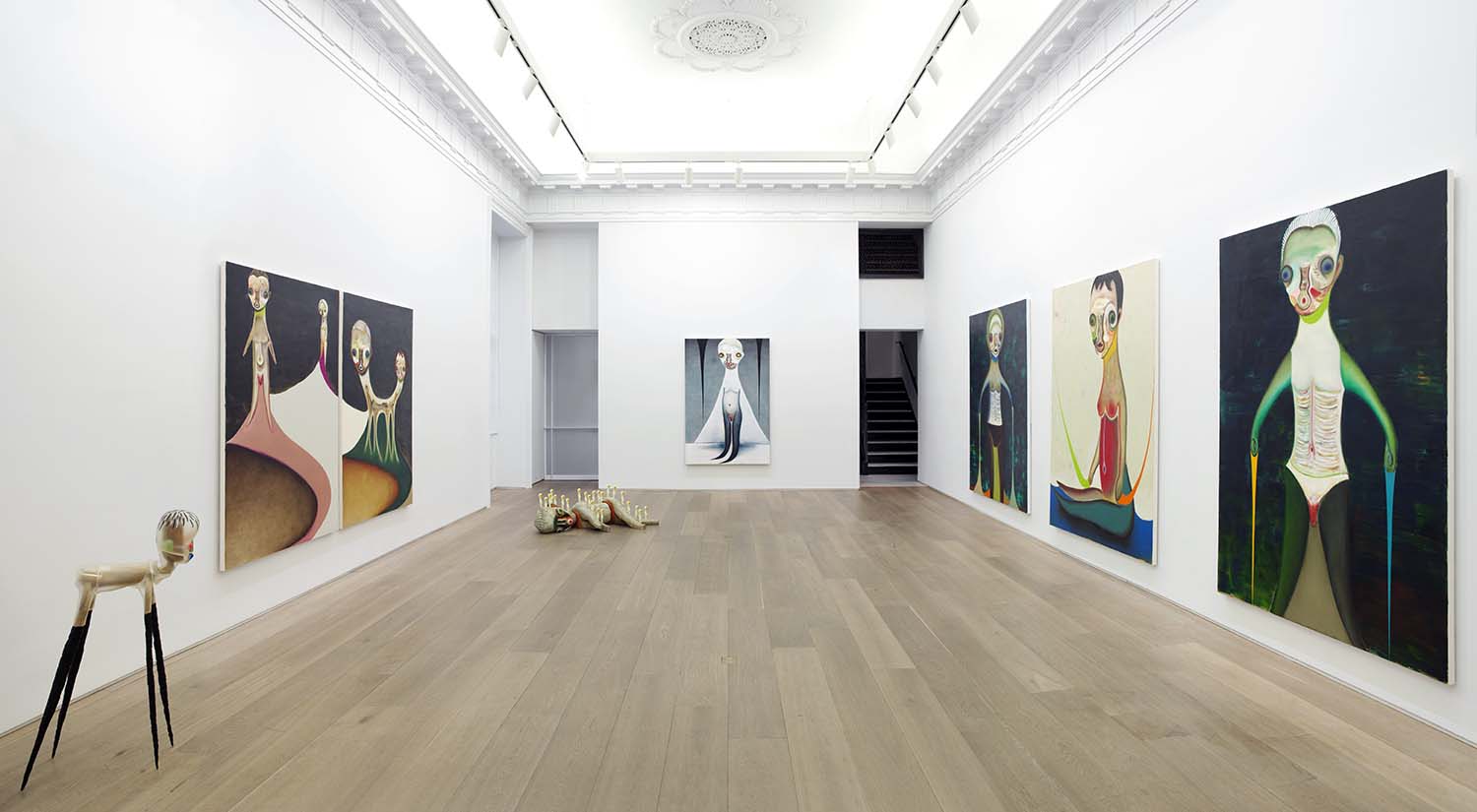“I don’t really believe that there’s a limit,” says Daniel Lopatin on his cell phone, between moving studios in New York. Lopatin is a Brooklyn-based producer working under the moniker Oneohtrix Point Never, and he’s talking about carrying his sound well beyond the aural to a broad-reaching, multidisciplinary and collaborative practice that spans platforms, countries and artists.
Lopatin has already worked with the likes of Tim Hecker and Takeshi Murata, and he continues to perform live with Nate Boyce. A budding filmmaker that would never be, he grew up idolizing directors Robert Rodriguez and Quentin Tarantino and got as far as contributing to the soundtrack of Sofia Coppola’s Bling Ring in 2013.
Right now, he’s about to release his eighth album, Garden of Delete, on Warp Records on November 13. He’s just finished a residency, has already started touring and is well into an intensive album press cycle. Lopatin’s music is featured in a film for the solo exhibition of Canadian artist Jon Rafman in London, and the two are currently working on a five-minute video for a track on Garden of Delete called “Sticky Drama.” There’s a website, some teaser videos and a self-initiated interview between Lopatin and an alien named Ezra on a mysterious blog. Needless to say, his CV is continually evolving beyond his job description, and it reveals the same sense of urgent overstimulation as the new album. Each track in Garden of Delete seems to suffocate under the force of its own glitches, channel-changes and digital detritus. It is an album that’s overwhelming in its depth and complexity, and one that’s not far off from life.
How do human emotions come into your practice?
I watch a lot of soaps. I watch things like Nashville and Empire and stuff like that because the affective scenarios that are deployed in those shows are really acute, they’re really specific, you can almost make an index of them. It’s like, ok, there was this mental breakdown and it’s branching off into something else. Like, how did they get from mental breakdown to overjoyed? That to me is like a node. It’s almost like synthesis to me, in the way that you can kind of modulate things that are feeling unconnected to each other and create new relationships. That’s what comes into play, and how that comes into play on a practical level.
I think I rely on allegory a lot, and I try to demarcate certain things that happen in the music. It’s like, this is going to be this because I said so. This is going to be a traumatic landscape because I said so. Once you define it for yourself and you say, “this area is demarcated trauma,” or “this area is demarcated messiness,” or whatever, you can really start modulating those things.
With that in mind, and having been so interested in making film early on, it sounds like your interests lie in the art of emotional manipulation. Do you find that hopeful or depressing — the thought of being able to evoke certain feelings from people, or from yourself?
I’m a self-admitted hedonist on some levels, so when you’re that combination you tend to be kind of open to the manipulation, or you get some joy from it. I never would call it a “guilty pleasure” or anything like that. I think it’s much deeper than that. I am generally agitated a lot by the repetition, or the tedium, of the predictability of things. I hate clichés. I don’t find them interesting or worthwhile or funny. I find them to be irritating and find them to be generally negative and uninspiring. They just assume everybody is a bag of bones just sitting there and accepting whatever they get, so that’s not good. But I’m also not on some kind of crusade of like, “Oh, I’m going to take that and flip that it into something special and idiosyncratic,” because I don’t really think that that’s a unique thing to do. I think it’s a human responsibility to have some agency over the things that happen in front of you, that you may or may not want to happen to you. I don’t think that’s art. That’s just something delegated to us by being part of a society.
It’s like, “Ok, you’re going to be confronted by things that you don’t like and you should come to terms with it or find a way to deal with that, or do whatever you need to do with that,” but that’s not art-making for me. I think that’s just a small part of just being alive at this point. Because there’s just so much shit everywhere. If I closed my eyes and put my hand down on the pavement right now, I’m on Manhattan Avenue, I’d probably pick something up that I could Instagram and ten people would for whatever reason like it. That doesn’t make the world a better place at all. It’s just a place with tons of stuff, tons of volume. I feel like we have a responsibility to live our lives with some kind of a delegation process. Where we make good decisions, healthy decisions for ourselves about how to deal with that stuff.
I guess, along with your ideas about the materiality of sound, it’s like taking a bunch of stuff with loads of information embedded in it already and sculpting it into something that’s meaningful to you, because otherwise there’s just no way of dealing with it.
Unfortunately it seems like that’s what we’re faced with.




